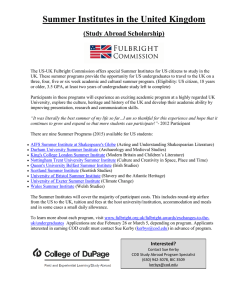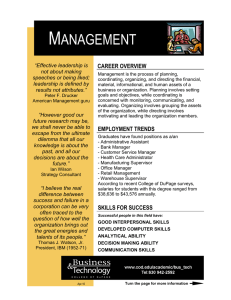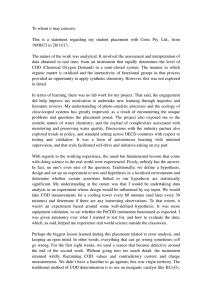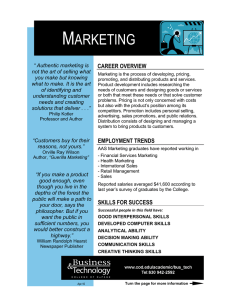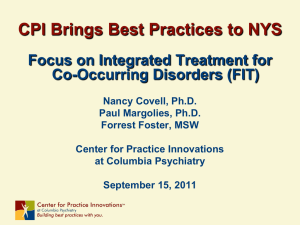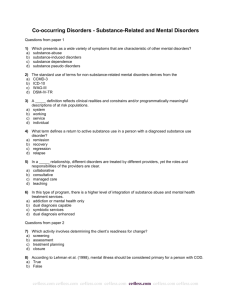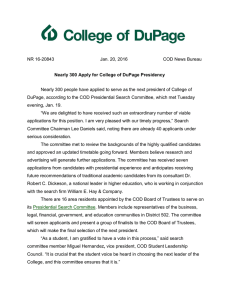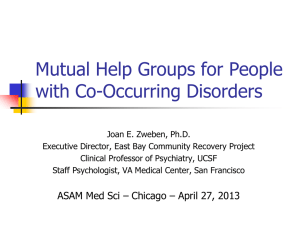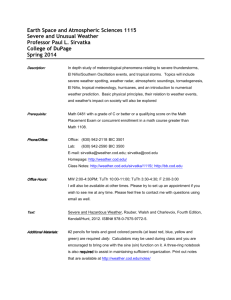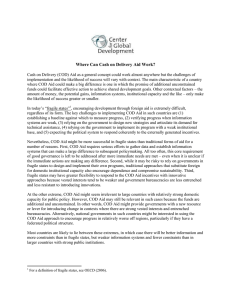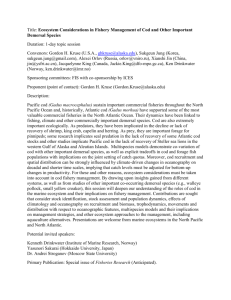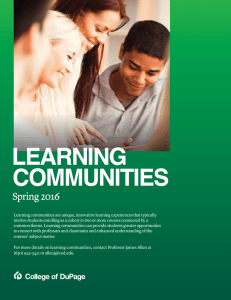MISSION STATEMENT: N
advertisement
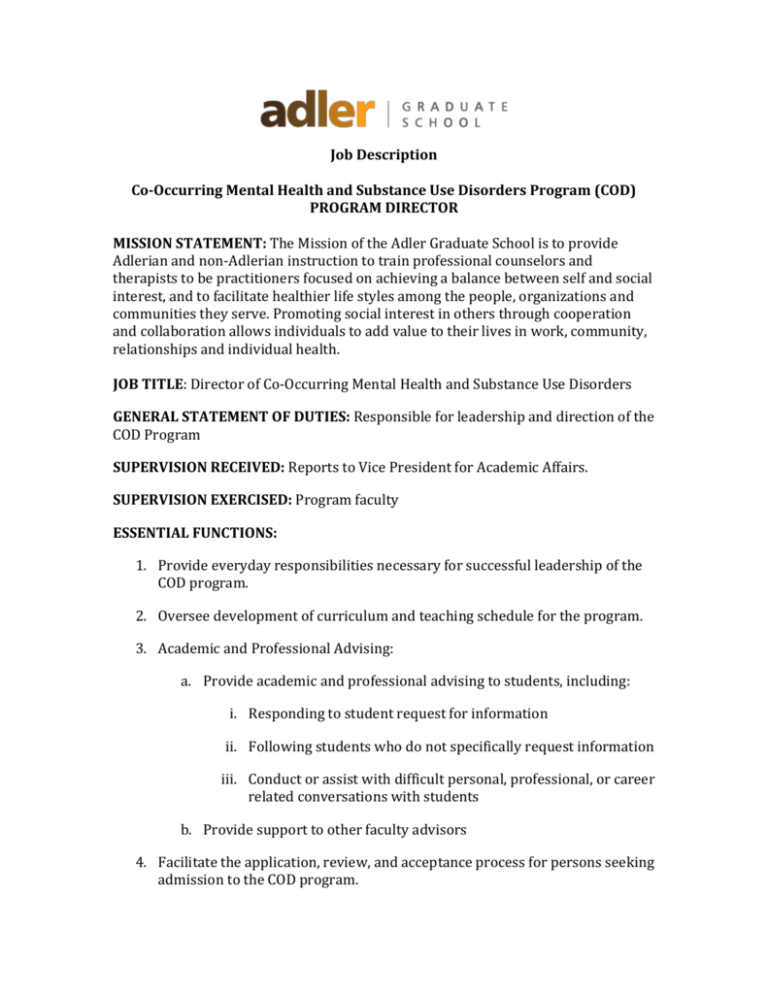
Job Description Co-Occurring Mental Health and Substance Use Disorders Program (COD) PROGRAM DIRECTOR MISSION STATEMENT: The Mission of the Adler Graduate School is to provide Adlerian and non-Adlerian instruction to train professional counselors and therapists to be practitioners focused on achieving a balance between self and social interest, and to facilitate healthier life styles among the people, organizations and communities they serve. Promoting social interest in others through cooperation and collaboration allows individuals to add value to their lives in work, community, relationships and individual health. JOB TITLE: Director of Co-Occurring Mental Health and Substance Use Disorders GENERAL STATEMENT OF DUTIES: Responsible for leadership and direction of the COD Program SUPERVISION RECEIVED: Reports to Vice President for Academic Affairs. SUPERVISION EXERCISED: Program faculty ESSENTIAL FUNCTIONS: 1. Provide everyday responsibilities necessary for successful leadership of the COD program. 2. Oversee development of curriculum and teaching schedule for the program. 3. Academic and Professional Advising: a. Provide academic and professional advising to students, including: i. Responding to student request for information ii. Following students who do not specifically request information iii. Conduct or assist with difficult personal, professional, or career related conversations with students b. Provide support to other faculty advisors 4. Facilitate the application, review, and acceptance process for persons seeking admission to the COD program. 5. Assist with practicum/internship, class visits and faculty development assistance. 6. Regular attendance in meeting forums for which the Program Director has been assigned or volunteers. 7. Support ongoing maturation of COD Program. 8. Regular supervisory meetings with VPAA. 9. Other tasks as assigned. The job holder must demonstrate competencies applicable to the current job position. EDUCATION: Master’s Degree (doctorate preferred). PREFERRED LICENSES LADC & Mental Health field (LPCC or LMFT or Licensed Psychologist). EXPERIENCE: 1. Minimum of 3-5 years of hands-on experience in the area of Co-Occurring Disorders or Mental Health Counseling. 2. Higher education teaching experience. REQUIREMENTS: 1. Commitment to current best practices and unyielding ethical practice. 2. Commitment to increasing diversity within the organization and to working with an increasingly diverse academic community and community at-large. 3. Commitment to community engagement/service. 4. Valid Minnesota Driver’s license and vehicle. KNOWLEDGE: 1. Solid understanding of best practices in Co-Occurring Disorders field. 2. Knowledge of and commitment to the ethics which guide the practice of COD professionals. 3. Understanding of issues and trends characterizing the addictions and mental health fields. SKILLS: 1. Superior communication skills, including significant communicating on the phone, speaking with the public, and producing written materials. 2. Ability to serve as community ambassador for COD Program and Adler Graduate School. 3. Ability to solve problems with students and site supervisors. 4. Coordinate multiple field placement sites. 5. Ability to conduct program evaluation and assessment. 6. Ability to assess students’ level of performance and skill. 7. Facilitate the developing vision for future of the program. 8. Technological proficiency. ABILITIES: 1. Ability to handle multiple projects simultaneously and set priorities. 2. Ability to work effectively with students, alumni, faculty, staff, and organizations in the external community. PHYSICAL/MENTAL DEMANDS: Work may require flexibility in scheduling hours of work and, in general, a professional’s orientation to task completion. ENVIRONMENTAL/WORKING CONDITIONS: Work is performed in an educational environment and involves frequent contact with students, alumni, faculty, staff and the public. Work may be stressful at times. This description is intended to provide only basic guidelines for meeting job requirements. Responsibilities, knowledge, skills, abilities and working conditions may change as needs evolve. June 2014
